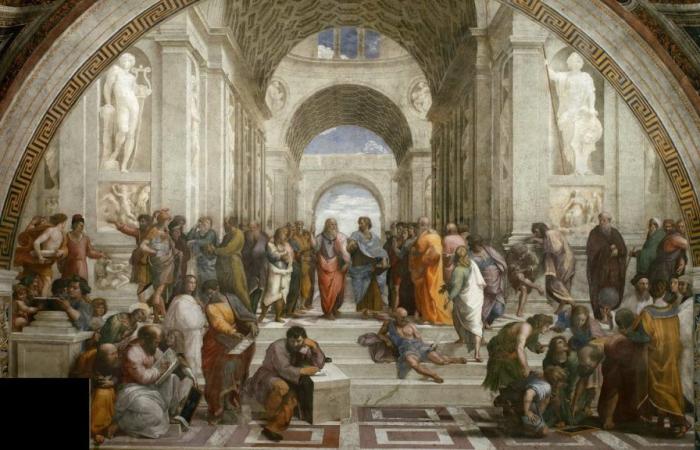Finally a philosophy book with the gift of lightness which can be read without the impression that the author is facing a mortal test between himself and the greats of the past. The latest book by chance fell into my hands Emanuele Ferretti (called Scrip), Even Socrates had some doubts (Cairo, 2024), well-known YouTuber and high school teacher, and I must confess that I enjoyed reading it, quite a bit. The great merit of its 250 agile pages is the serenity that allows you to look at the great philosophers of the past with simplicity, but without distorting their message. Without pretensions to erudition, without having to prove anything, Ferretti presents his existential perspective, a mixture of skepticism and Venetian common sense, which encourages us to explore philosophy without ever losing contact with our world.
The journey of life, between ups and downs
We start from failure, but not as a negative concept, but rather as an indispensable moment to try to complete a journey which, for some, will lead to Everest and for some will lead to the beach of Riccione. The beauty of this book is that it does not want to convince you or sell you a method to be successful, but to take away the fear of falling. If you really have to fall, and it happens even to the great and very great, do it in such a way as not to hurt yourself and, above all, in order to get back up and start walking again. I confess that, if I had been the editor of this text, I would have proposed changing the word “failure” with the word “attempt”, but I understand why Ferretti preferred a more direct term. He is a practitioner of parrhesia, speaking frankly and directly, without half measures, which the Greek philosophers preached to avoid the pitfalls of the werewolves of rhetoric (this is how those who used dialectics to impose their opinions were defined).
The text moves briskly from ancient Greece to the present day. A very beautiful part is the one that reports the myth of Sisyphus according to the existentialist philosopher Albert Camus where his torture, condemned by Zeus to push uphill for eternity a boulder destined to roll down, is seen in a positive perspective. Ultimately Sisyphus is happy: pushing the boulder against gravity is his nature. As in the Vahalla of the Vikings, where we continue to fight even in paradise, so what matters is finding, in every step, the meaning of moving forward. The story of Sisyphus reminded me of both the philosopher Rocco Ronchi and Rocky Balboa. The first wrote, with very beautiful words in 2007, that «philosophizing is an endless exercise, an immense job, practically impossible to complete. You always have to start over. Nothing can ever be taken for granted under penalty of betrayal of one’s vocation. Continuously collapsing, almost on every page, if not on every line, the philosopher’s world must be entirely rebuilt from the ground up..» The second, in the last moving chapter of the saga of the Philadelphia boxer, Balboahe reminds his son «it doesn’t matter how many punches you throw, it matters how many punches you take and you will be able to take it by getting back up».
The greatness of the finite
Don’t worry, the book you have in your hands he doesn’t punch youbut takes you with a friendly hand from the irony and maieutics of Socrates to today’s torments of narcissists and fake news. How to use philosophy to get rid of the evils of modern life: desire for success, narcissism, dogmatism. Indeed, how to translate philosophy so that it speaks like us and discover that our small daily problems afflicted human beings of every era.
From the pages Ferretti’s experience as a high school teacher shines through, called upon every day to make its authors speak in a way that is understandable for its students (but not only). The synthesis of critical thinking according to Immanuel Kant is hilarious: setting ourselves up as judges of our beliefs knowing that we are both the judge and the accused. And so Lieutenant Columbus is a emulator of Socrates, Gregory House of Aristotle and De Niro is a skeptic who was able to combine talent and modesty in his choices. And all of us, one step at a time, one day after another, even one fall after another, are on the stage of existence and have our part.






